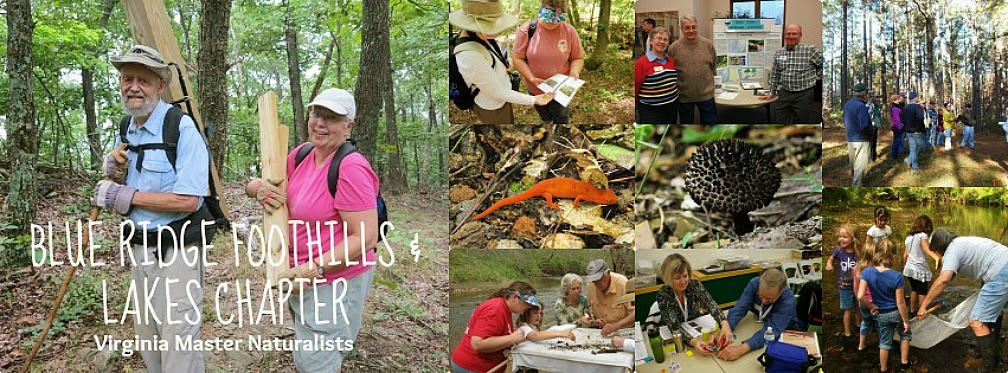An official press release of the Virginia Department of Conservation and Recreation
Virginia Department of Conservation and Recreation recognized for efforts to control invasive Phragmites
RICHMOND — The Virginia Department of Conservation and Recreation has been recognized by the Mid-Atlantic Panel on Aquatic Invasive Species (MAP-AIS) for efforts to control Phragmites, a tall, wetland grass species classified as invasive in Virginia and the rest of the United States.
DCR’s Natural Heritage Program received a certificate of merit in the panel’s first-ever Rachel Carson Awards program. The program was established to recognize individuals and organizations that demonstrate commitment to and progress in thwarting aquatic invasive species.
 |
| Phragmites |
“DCR has worked hard to form strong partnerships in the battle against invasive species,” said Tom Smith, DCR’s Natural Heritage director. “From the Virginia Native Plant Society beginning in the early 1990s, the list of active partners has grown too long to easily list. However, all are critical in efforts to inform the public, take active measures to keep out the most invasive species not yet here, and to strategically manage widespread invasives, such as Phragmites, from our most important marshes.”
Nominees for the awards were evaluated on several criteria related to their efforts to combat invasive species. The criteria included strategies used to educate the public, the development of new or expanded technologies, and success in limiting the abundance of an exotic, invasive or “nuisance” species.
“Through its small grants program, the panel has supported Natural Heritage’s proactive and holistic approach to managing Phragmites,” said Lisa Moss, coordinator of the MAP-AIS. “The staff’s dedicated and consistent efforts reflect the Rachel Carson spirit and attest to the important work being done in the Mid-Atlantic region to ensure the protection of our valuable wetlands.”
During the last 50 years, Phragmites has become increasingly abundant along the East Coast. DCR staff has mapped more than 12,000 acres of the grass in coastal Virginia. In Back Bay, 6,000 acres occupy 10,000 acres of wetland habitat.
Phragmites overwhelms other marsh plant species from above and below ground. Tall stems can grow up to 15 feet. Fast-growing underground stems form new shoots and thick, tangled root mats. Phragmites clogs drainage ditches, invades agricultural fields and offers little habitat for wildlife.
“Phragmites is like the kudzu of our wetlands,” said Kevin Heffernan, a DCR stewardship biologist who works on the Phragmites-control program. “It replaces native marsh vegetation, reducing habitat for birds and waterfowl, and it reduces property values by obstructing water views. It also increases wildfire hazards and provides ideal breeding habitat for mosquitoes.
“Once established, Phragmites requires several years of herbicide treatments to control.”
As a prize for being recognized, the Natural Heritage program received a new Garmin GPS unit, which staff will use to map invasive plants across the state. The unit came courtesy of the U.S. Fish and Wildlife Service Virginia Fisheries Coordinator Office.
Virginia’s Natural Heritage program began in 1986 and celebrates its 25th anniversary this year. The mission of the program is to conserve Virginia’s biodiversity through tightly integrated activities of biological inventory, database management, land protection and ecological stewardship.
Phragmites is featured in a new 12-page educational booklet and on a classroom-friendly poster developed by the Natural Heritage program and Virginia’s Invasive Species Working Group. To view these materials, visit www.vainvasivespecies.org. To request materials, email julie.buchanan@dcr.virginia.gov.
MAP-AIS also awarded a certificate of merit to the Perkiomen Watershed Conservancy in Pennsylvania for its efforts to eradicate the European water chestnut. The New Jersey Conservation Foundation received the Rachel Carson Award for initiatives to combat bighead carp.'
Learn more about Phragmites here.
BRFAL Chapter of Virginia Master Naturalist congrats DCR for this accomplishment. Want to get involved in something cool? Learn more about the Virginia Master Naturalist program here.

No comments:
Post a Comment
Thanks for your comment and interest! NOW GO OUTSIDE!